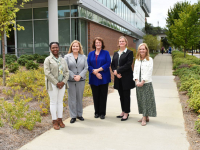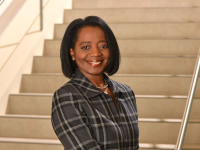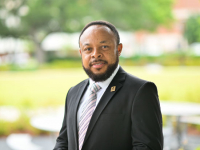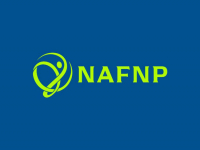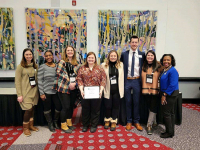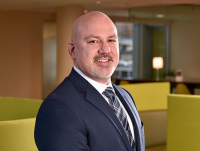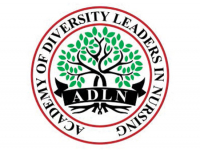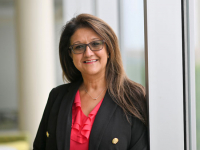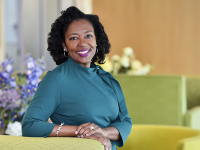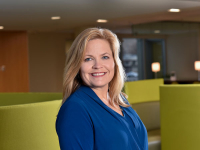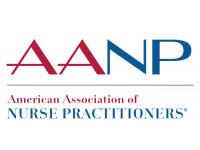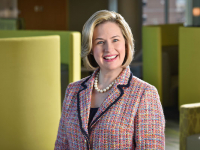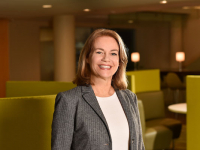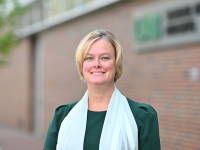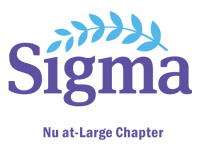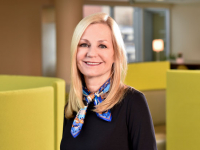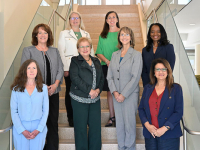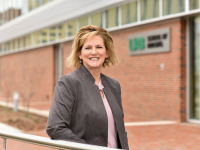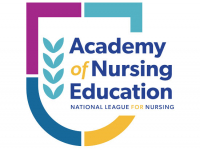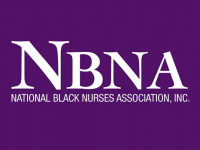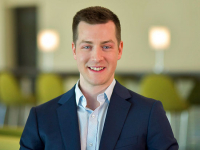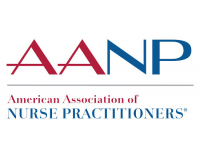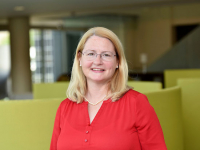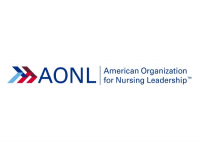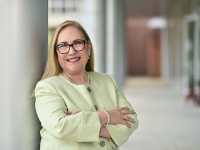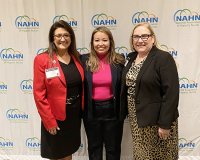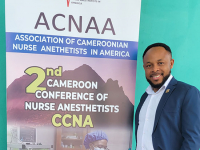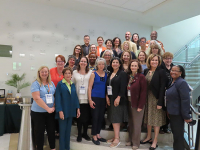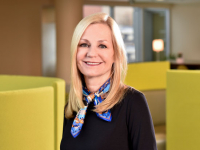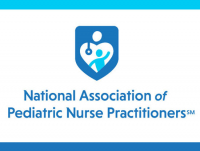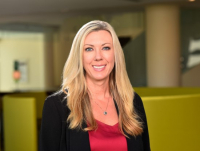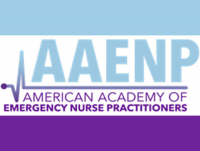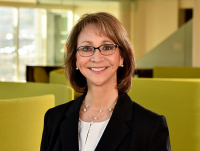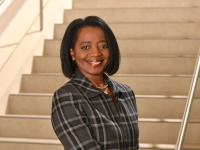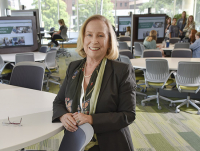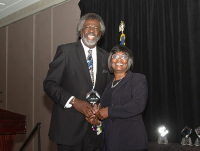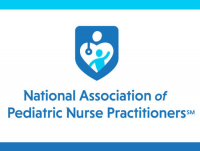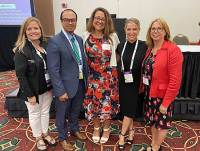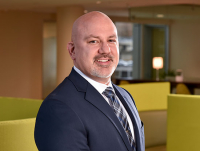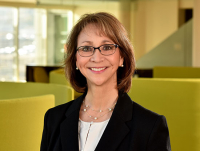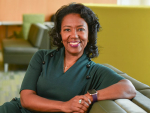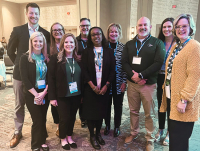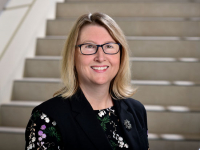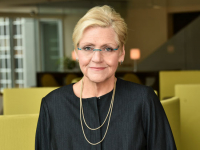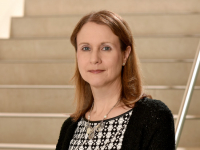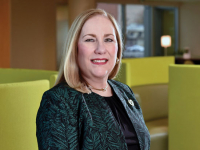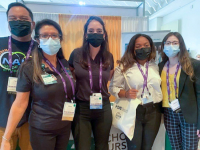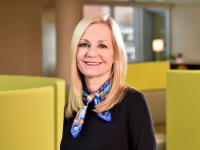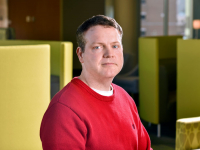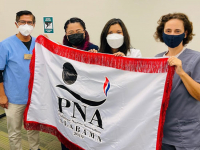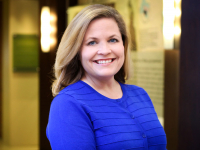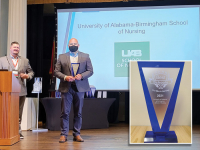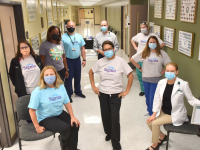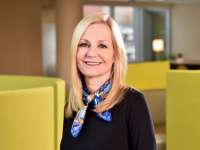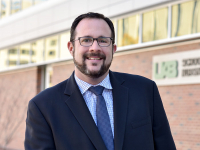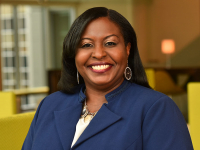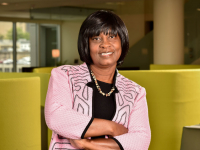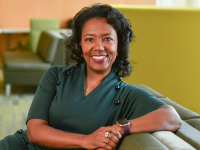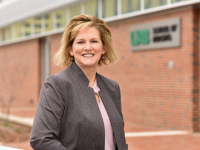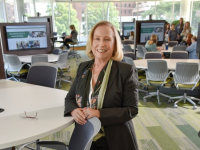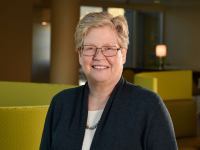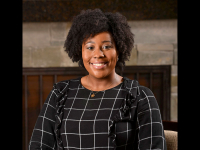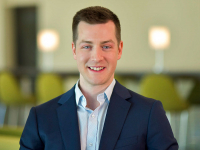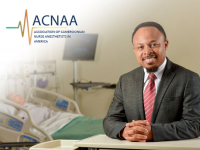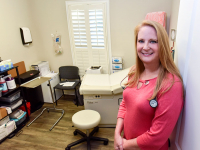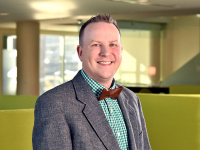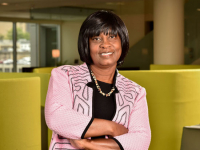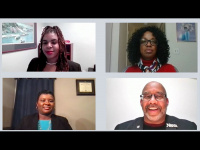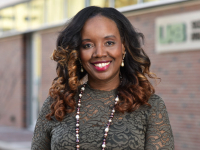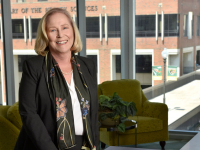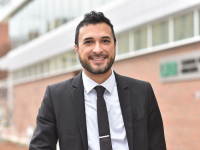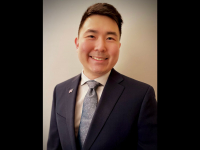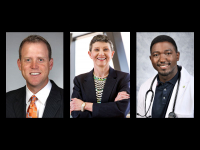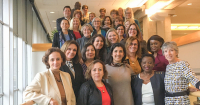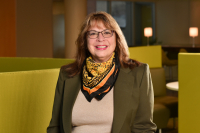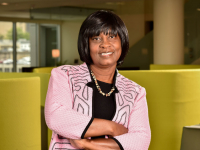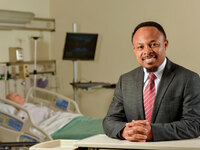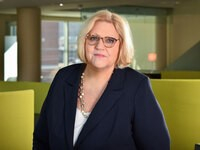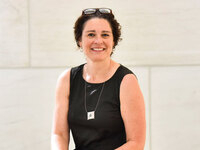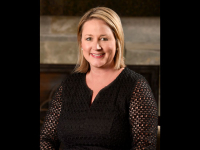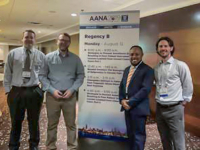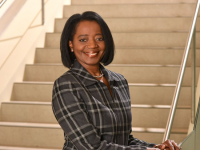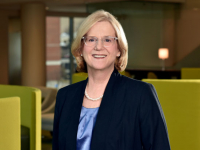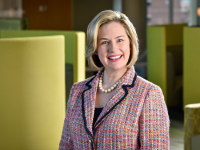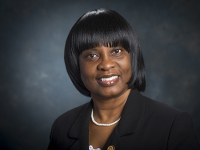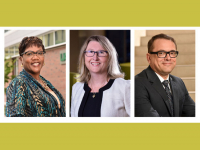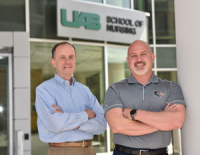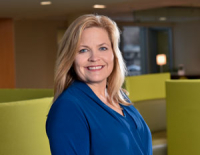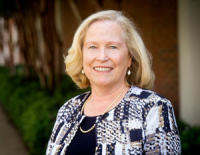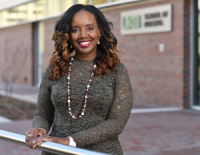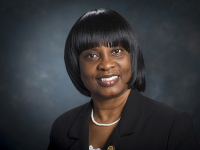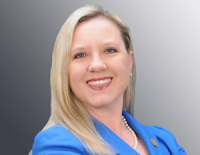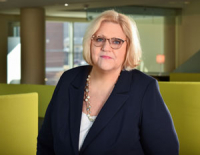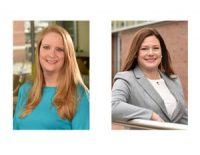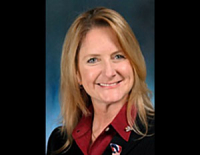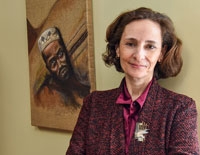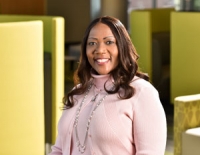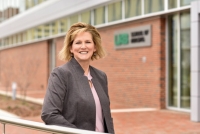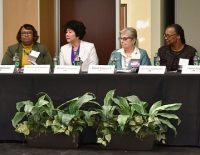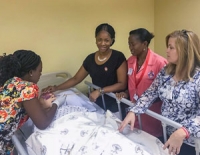The UAB School of Nursing’s leadership stretches from Birmingham, across Alabama and the Southeast, throughout the nation and to such international sites as Latin America, Africa and the Middle East, where the school has partnered to build nursing capacity and develop knowledge to improve health and well-being. The need for nursing leaders to help forge creative change to advance health globally remains a high priority.
This year, the UAB School of Nursing celebrates 20 years as a Pan American Health Organization (PAHO)/World Health Organization (WHO) Collaborating Center for International Nursing. The school is one of only 10 centers in the U.S. and one of 42 worldwide. This designation acknowledges the school’s sustained commitment to global health and recognizes UAB as an international leader in nursing education, research and service. Two of our nurse leaders were recently chosen for service in Africa, where they will be working to transform care through enhanced nursing education and leadership development.
Preparing Leaders in Uganda
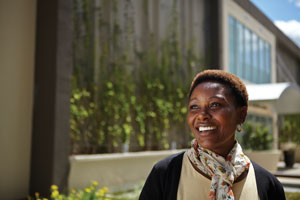 Olivia Bahemuka, DNP, MSN, RN, CTN-B, was awarded an Afya Bora Consortium Fellowship in Global Health Leadership in 2013.Third-year DNP student Olivia Bahemuka, MSN, RN, CTN-B, was recently awarded an Afya Bora Consortium (ABC) Fellowship in Global Health Leadership. She will spend a year in her native Uganda, playing a leading role in the ABC’s efforts to transform care in developing countries.
Olivia Bahemuka, DNP, MSN, RN, CTN-B, was awarded an Afya Bora Consortium Fellowship in Global Health Leadership in 2013.Third-year DNP student Olivia Bahemuka, MSN, RN, CTN-B, was recently awarded an Afya Bora Consortium (ABC) Fellowship in Global Health Leadership. She will spend a year in her native Uganda, playing a leading role in the ABC’s efforts to transform care in developing countries.
“Afya bora” is Swahili for “better health.” The consortium is a partnership of four American and four African universities. Each year, it supports 16 African and four American medical and nursing graduates and public health professionals. This is the first time the ABC has allowed students outside of its eight-member schools to apply for the fellowship, which prepares trainees for leadership roles in government, the private sector, and academic health institutions in developing countries.
Bahemuka said her advisor, Karen McCarty, PhD, RN, recognized her strong interest in global health and encouraged her to apply for the fellowship. McCarty then consulted Lynda Wilson, PhD, RN, FAAN. Wilson, assistant dean for international affairs at the UAB School of Nursing and deputy director of the school’s PAHO/WHO Collaborating Center, critiqued Bahemuka’s application materials and helped her prepare for her interview.
Bahemuka came to UAB with a passion for community health and valuable experience as assistant director of nursing at an Area Health Education Center in North Carolina. She also had been leading annual trips to Uganda, where she worked on HIV/AIDS initiatives and helped establish a clinic in the Wakiso district. She said those experiences, coupled with UAB’s emphasis on research, evidence-based practice, and quality and safety, prepared her to make a contribution globally. Her ultimate goals, once she completes her fellowship and graduates, are to return to Uganda to shape health policy; to improve health-care delivery; and to enhance nursing education globally.
Bahemuka is the third Ugandan nurse leader to graduate from the UAB School of Nursing. Godfrey Katende went on to complete a DNP at Johns Hopkins University, while Rose Nabiyre is now on faculty at Makerere University in Uganda.
Building Capacity in Malawi
Also working in Africa is Assistant Professor Deborah Kirk Walker, DNP, CRNP, AOCN, who has been named a Fulbright Senior Specialist by the J. William Fulbright Foreign Scholarship Board. This award allows Walker to serve as a visiting professor for up to six weeks at a foreign nursing school, twice over the next five years. She hopes to help the Kamuzu College of Nursing at the University of Malawi integrate oncology and palliative care into its curriculum and provide support for oncology nursing education in Malawi.
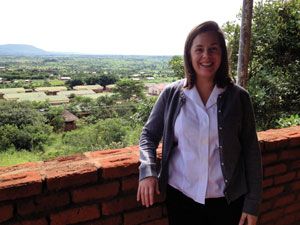 Deborah Kirk Walker in Malawi. Walker, an oncology nurse practitioner and scholar at UAB’s PAHO/WHO Collaborating Center, has always been interested in global health. She made her first trip to Malawi before coming to UAB. In February 2013, the Alabama-based 100X Development Foundation asked her to return to Malawi and do a needs assessment in the areas of oncology and palliative care.
Deborah Kirk Walker in Malawi. Walker, an oncology nurse practitioner and scholar at UAB’s PAHO/WHO Collaborating Center, has always been interested in global health. She made her first trip to Malawi before coming to UAB. In February 2013, the Alabama-based 100X Development Foundation asked her to return to Malawi and do a needs assessment in the areas of oncology and palliative care.
“While there, we were able to meet with the President of Malawi, as well as the Minister of Health and other government officials, who told us about their long-term plan to develop cancer care in their country and asked if we could do some capacity building in nursing and medicine,” Walker explained. “Right now, Malawi has one medical oncologist serving the entire country—that’s 15 million people. They have no cancer center and no radiation oncology facility. The government has plans for a cancer center but no money to build it.”
Absent funding for a fully equipped cancer center, Walker said, nursing education becomes all the more critical in Malawi: “They consider cancer a death sentence because they have no care. But we know that if we screen for cancer early enough, we can provide interventions for patients without having to go through radiation therapy or chemotherapy, so screening is key.”
Walker’s immediate goals are to review the nursing curriculum at the University of Malawi and work with faculty to incorporate oncology and palliative care content.
“In Malawi, there is so much that needs to be done, and so many things that have to happen at the same time in order to move forward,” Walker said. “But we’re looking at this great need as an opportunity for an interprofessional team to improve health and the quality of life. My husband is a physician assistant in palliative care, and we came to UAB because we knew it was the kind of place where we could have those collaborative relationships and make a difference for our patients. For us, being able to see the difference we can make compels us toward this global work.”

